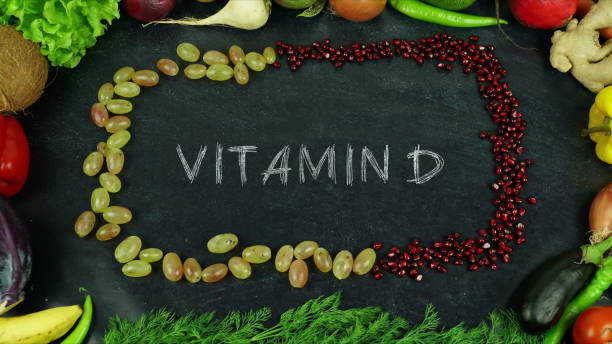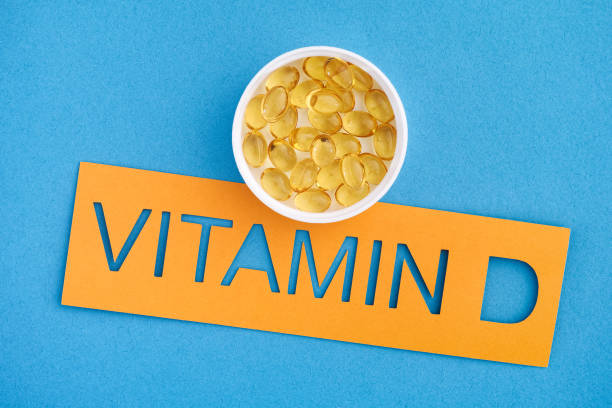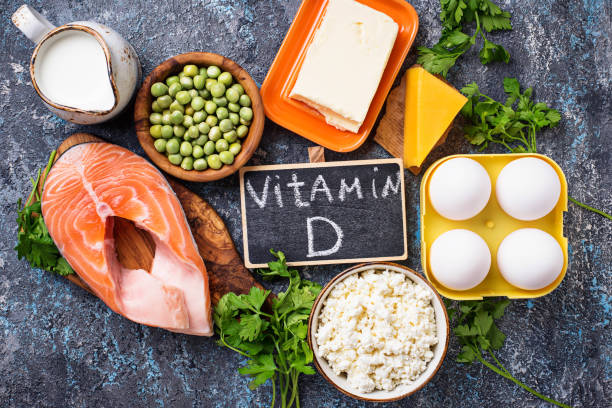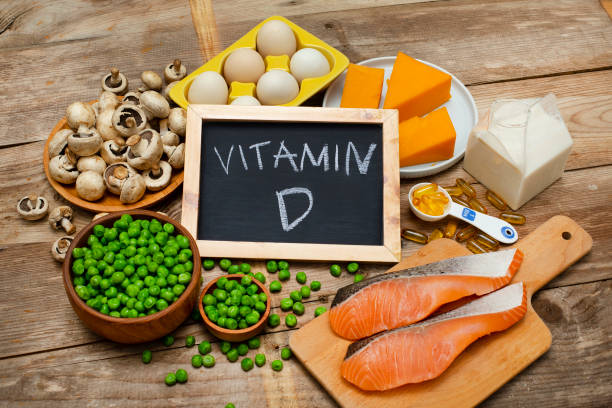Symptoms of vitamin D deficiency
Vitamin D deficiency
severe vitamin d deficiency symptoms
Vitamin D is one of the fat-soluble vitamins, and this means that the body absorbs it only by eating it with foods that contain fats, and therefore people who have problems absorbing fats may suffer from vitamin D deficiency, and it is worth It is worth noting that vitamin D plays an important role in the body’s contribution to obtaining an adequate amount of the minerals calcium and phosphorus, which play a major role in building and maintaining bones. It is also the only vitamin that the body produces from cholesterol when the skin is exposed to sunlight, so the body produces vitamin D when the skin is exposed. The sun's rays have sufficient periods and therefore it is called the sun vitamin. On the other hand, studies have indicated that a large percentage of the world's population suffers from vitamin D deficiency, and this deficiency may cause many symptoms as it is one of the essential vitamins for bone health and has a role in many vital functions in the body. We will discuss the symptoms of vitamin D deficiency in this article.
Symptoms of vitamin D deficiency
Most people do not realize that they suffer from symptoms of vitamin D deficiency, and therefore because the symptoms of deficiency are generally accurate and may be difficult to determine in general, and it should be noted that there are about a billion people in the world who suffer from symptoms of vitamin D deficiency, there are many factors that increase risk of contracting this disease
Such as: having dark skin, advanced age, overweight and obesity, lack of fish and milk products, lack of exposure to sunlight, fatigue and stress.
Here are some of the symptoms associated with vitamin D deficiency.
Three major signs of vitamin D deficiency

low vitamin d symptoms female
Feeling tired and tired, as studies have found that low levels of vitamin D negatively affect energy levels in the body and a feeling of fatigue
Infection with diseases and infections frequently, because it is one of the vitamins that play an important role in the immune system, which helps it to fight bacteria and viruses that cause disease.
Depression: Research has found a link between low levels of vitamin D and depression.
Poor wound healing, as vitamin D increases the formation of important compounds for wound healing, and it also has an important role in resisting inflammation and infection, which accelerates wound healing. Therefore, the deficiency in body levels reduces and slows down the speed of wound healing.
Weakness and hair loss, and there is a relationship between vitamin D deficiency and hair loss, especially in women, as indicated by the acute deficiency of vitamin D that causes alopecia areata (English: Alopecia areata).
Muscle pain, studies have linked vitamin D deficiency to severe lower back pain that limits daily activities.
Osteoporosis and tooth decay.
Causes of vitamin D deficiency

Vitamin D deficiency can result from a number of reasons, including the following:
Not consuming sufficient amounts of vitamin D from food sources, especially for vegetarians, as most sources of this vitamin are from animal foods.
Lack of exposure to sunlight affects people who live in northern regions with vitamin D deficiency.
Having dark skin, as melanin pigment reduces the skin's ability to manufacture vitamin D when exposed to the sun. Also, elderly people with dark skin are more susceptible to vitamin D deficiency.
The inability of the kidneys to convert vitamin D into its active state, and this happens with age.
Obesity, where vitamin D is extracted from the blood through fat cells, which leads to its transmission with the blood circulation, so people with obesity suffer from low levels of vitamin D in the blood.
The inability of the gastrointestinal tract to absorb vitamin D from the food ingested, and this could be due to Crohn's disease, cystic fibrosis, or wheat allergy.
The importance of vitamin D

low vitamin d symptoms in adults
It helps absorb calcium and phosphorus in the small intestine and kidneys and deposits them in the bones, thus maintaining the strength and density of bones and muscles, but in the event of a deficiency, it causes osteoporosis.
Fights the formation of cancer cells.
Reducing the risk of catching the flu.
Reducing the risk of diabetes.
It activates the immune system.
Fights arterial diseases and sclerosis.
Recent studies have shown that it is associated with depression, and maintaining its quantity in the body reduces symptoms of depression.
Vitamin D boosts immunity in the body. Studies have shown that it fights tuberculosis and breast cancer.
It significantly contributes to weight loss and obesity.
Keeps the mind healthy.
Pregnant women are protected from preeclampsia.
Reduces the chance of Alzheimer's.
Protects muscles and reduces pain caused by sports activities.
Improves and activates memory and contributes to faster analysis of information.
It enhances the body's ability to absorb some other vitamins such as vitamin A and K, in addition to some other substances.
Vitamin D fights tooth decay, as it is added to the toothpaste to preserve it, and it also works to strengthen the teeth.
Sources of Vitamin D

vitamin d deficiency symptoms in hindi
Vitamin D can be obtained through the production of the skin through exposure to sunlight or from the diet, in addition to consuming nutritional supplements, of which it is recommended to take 2000 international units on a daily basis only in the absence of exposure to these rays, and thus avoid symptoms of vitamin D deficiency, and the following are the most important sources Dietary Vitamin D.
Sardines.
salmon.
whale liver oil.
yolk.
canned tuna
oysters.
Foods fortified with vitamin D, such as milk, orange juice, cereals, and oatmeal.
mushrooms.
